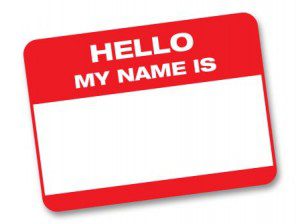 The New York Times reports today that there is a rising body of opinion that the term “cancer” is out of date and is being misapplied in ways that can even help to kill patients. The concept of cancer as a progressive disease that will kill if the cells are not destroyed stems from the work of a 19th century German pathologist who studied cancer cells only in dead patients. The future of “cancer” cells in living patients can follow many alternate paths. What is now being diagnosed as “stage 0 breast cancer”, for example, may prove to be non-invasive and self-contained, not remotely life-threatening.
The New York Times reports today that there is a rising body of opinion that the term “cancer” is out of date and is being misapplied in ways that can even help to kill patients. The concept of cancer as a progressive disease that will kill if the cells are not destroyed stems from the work of a 19th century German pathologist who studied cancer cells only in dead patients. The future of “cancer” cells in living patients can follow many alternate paths. What is now being diagnosed as “stage 0 breast cancer”, for example, may prove to be non-invasive and self-contained, not remotely life-threatening.
In a recent book, Overdiagnosed: Making People Sick in the Pursuit of Health, Dartmouth physicians and researchers H. Gilbert Welch, Lisa Schwarts and Steven Woloshin argue that the medical establishment’s view that early diagnosis and treatment is what keeps people well is actually undermining the health of many. In Welch’s opinion, “overdiagnosis” leads to unnecessary surgery and invasive procedures and can cause stress and depression that wrecks the patients’ immune systems and paralyzes their ability to contribute to their own healing. A certain type of diagnosis and prognosis (even when not a mis-diagnosis) can bind the patient’s imagination to a negative pattern of expectation that leads the body to conform to what the physician says it will do.
There is so much power to heal or harm in the way we name things. Yet nosology, the science of giving diagnostic names to symptoms, is one of the most imperfect of all medical sciences. Think of what the crew of “House” go through in the TV series before they determine an accurate diagnosis, usually after coming close to killing the patient.
Active dreamers can help greatly in this area by encouraging patients – and physicians, when they are ready to hear – to visualize and name conditions in ways that support containment and healing.
Dreams show us our conditions in a different language from the medical profession (though they may also incorporate medical language and medical procedures). The language of dreams offers us the power of visioning and naming our symptoms in ways that help us to become well.
In The Three “Only” Things I discuss the case of a woman patient whose physicians could not agree on a diagnosis for her collection of symptoms until a wolf entered her dreams and told her, “My name is Lupus Wolf. Tell the doctors.” When she did this, her physicians agreed that lupus might be an accurate diagnosis for her condition, and embarked on a treatment plan accordingly. Lupus Wolf reappeared in the woman’s dreams, now as an ally in healing.
Dreams give us a rich and interactive personal vocabulary for our conditions. For example:
Cleaning Up the Henhouse
A woman challenged by ovarian cancer dreamed, over many months, of problems involving a henhouse that needed to be cleaned out, where a dwindling population of healthy chicks was eventually revived. Through her struggles, she was amused and enlivened by the dream analogies between her reproductive system and the henhouse, and worked closely with these dreams, sharing some that provided specific guidance on treatment with her physicians.
Fifties Roadster
Another dreamer asked for guidance whether she should have surgery for a herniated disk. In her dream, she saw a zippy Fifties roadster, painted red and white, with a huge ultra-modern sound system in the back. She was told in the dream that mechanical repairs were not necessary and would be excessively costly. Waking, she recognized that her body was the Fifties roadster, and that a sound system is also a disk player. She proceeded to experiment – with very healing results – with the power of toning and vibration to help with her back problem.
Next: Dreams Give Us the Power of Naming

